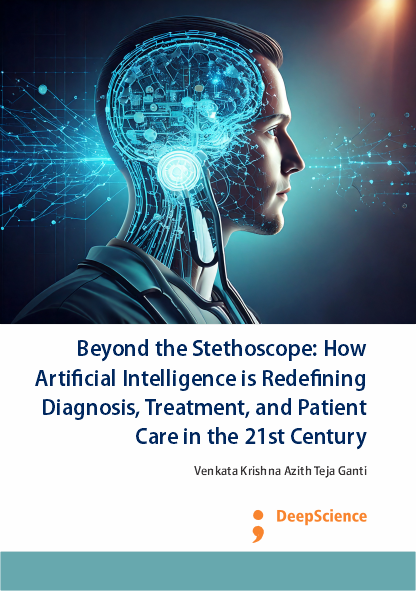The road ahead: challenges and opportunities in artificial intelligence's integration into global healthcare systems
Synopsis
In the ongoing narrative of healthcare, AI assumes a pivotal role. As the driving force behind precision medicine, it fulfills a pressing need for enhanced care. The primary hurdle to widespread AI adoption in healthcare is by no means a technological one - it centers upon ensuring seamless integration of such technologies into daily clinical practice. Nonetheless, AI technologies are making remarkable strides across a diverse array of healthcare applications, serving as a vital catalyst for advancements in medical diagnosis, virtual patient care, treatment adherence, and administrative efficiency. Unquestionably, in line with its primary design directive of automation, AI is proving capable of executing certain responsibilities with superhuman accuracy. This is particularly visible in controlled settings with well-defined parameters, such as the classification of pneumonia from chest X-rays. However, this trend is counterpointed against a myriad of reports both documenting mistakes of astonishing negligence as well as findings that can only be charitably described as absurd. Accordingly, it comes as no surprise that several research reviews have concluded AI systems are currently plagued by a host of limitations and lingering doubts. Despite widespread enthusiasm surrounding its applied potential, AI in the present day still grapples with an assortment of challenges of a technological, ethical, and regulatory nature that academic discourse has scrambled to address. The reported solutions to these challenges span a gamut of innovative training methodologies, model designs, and investigatory techniques. Central among the latter have been efforts benchmarking the performance of biomedical AI algorithms against human experts in the realms of specialties as diverse and impactful as dermatology, neuroscience, and oncology. Therefore, within this overarching milieu, nuanced technical criticisms, police investigations, and a litany of regulations have factored heavily in forecasting the form taken by AI’s convergence with global healthcare systems moving forth. The development of such personalized technologies has garnered considerable interest, promising improved health care outcomes. Major diseases, given certain biomarkers and patient genetic information, can be predicted in a series of discrete time intervals. In this era of precision medicine, it is argued that the integration of these technologies into global healthcare systems will foretell healthcare in the upcoming years. The current article will aim to identify and propose possible strategies to mediate these challenges.













